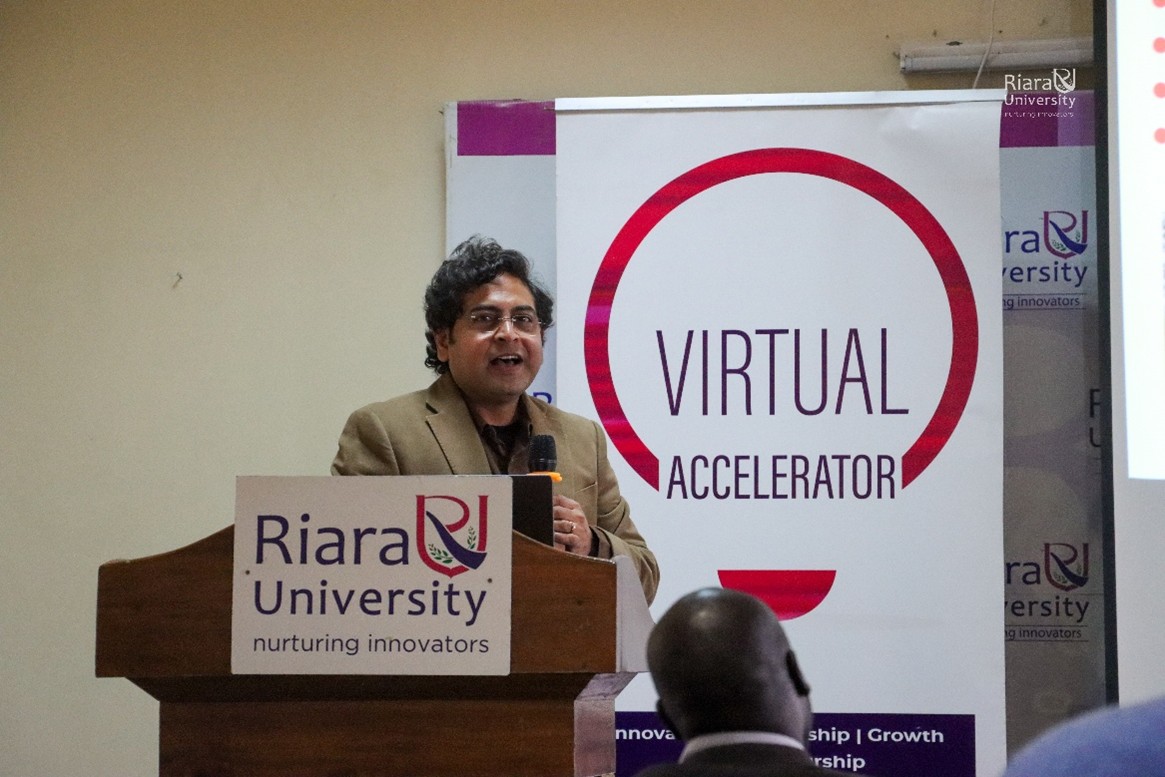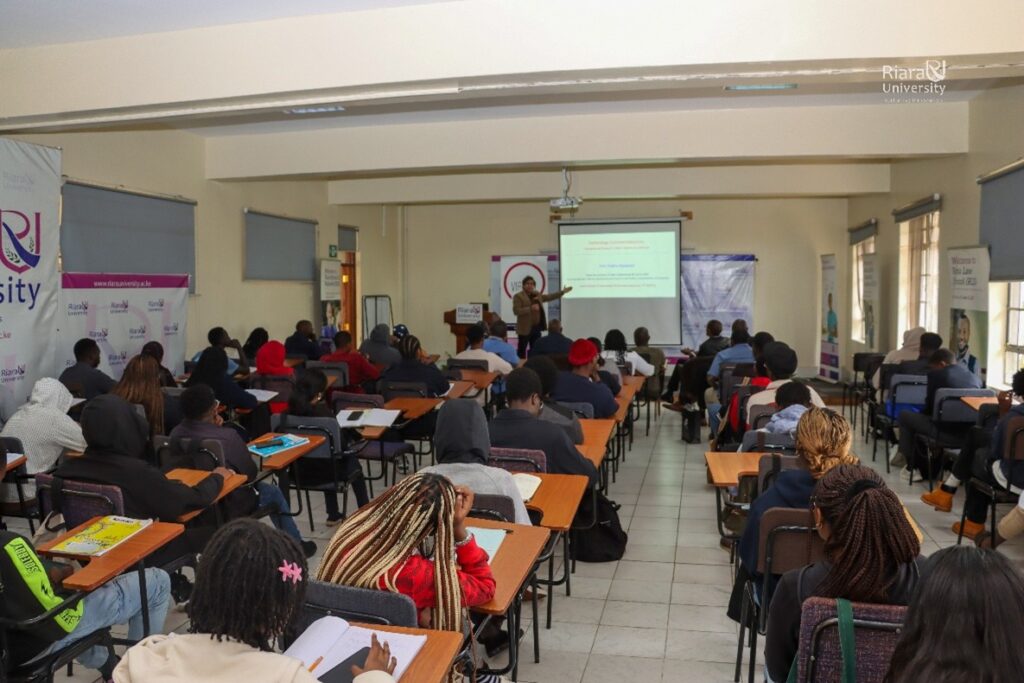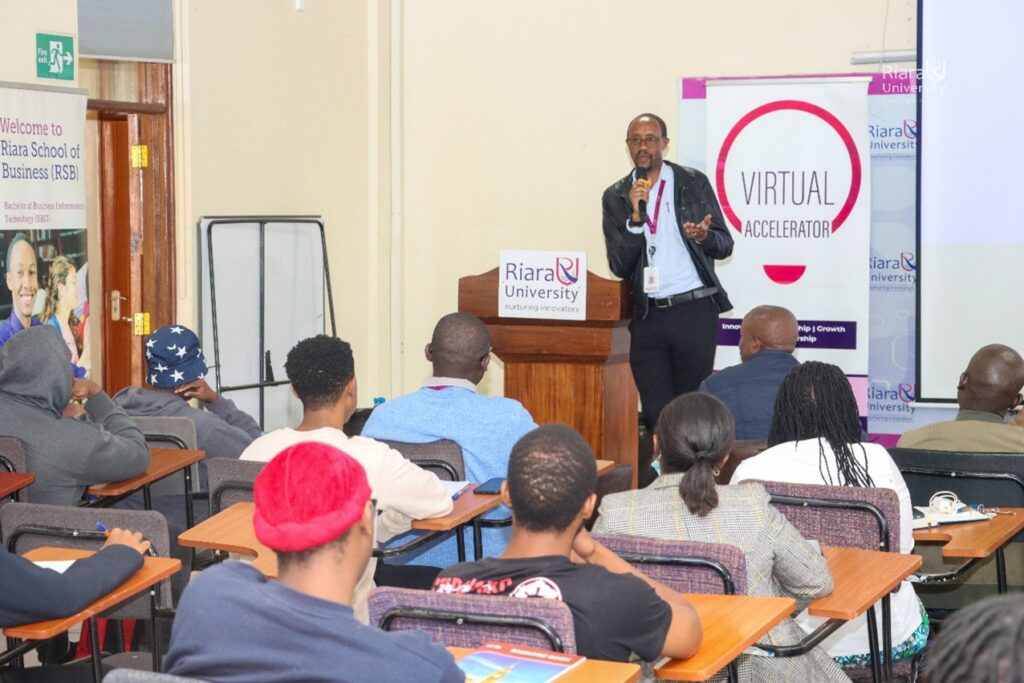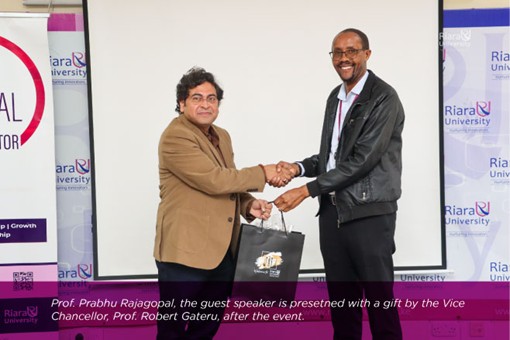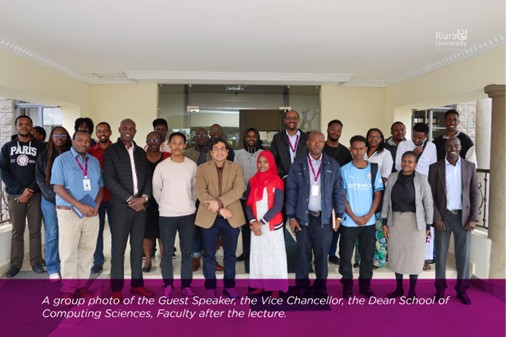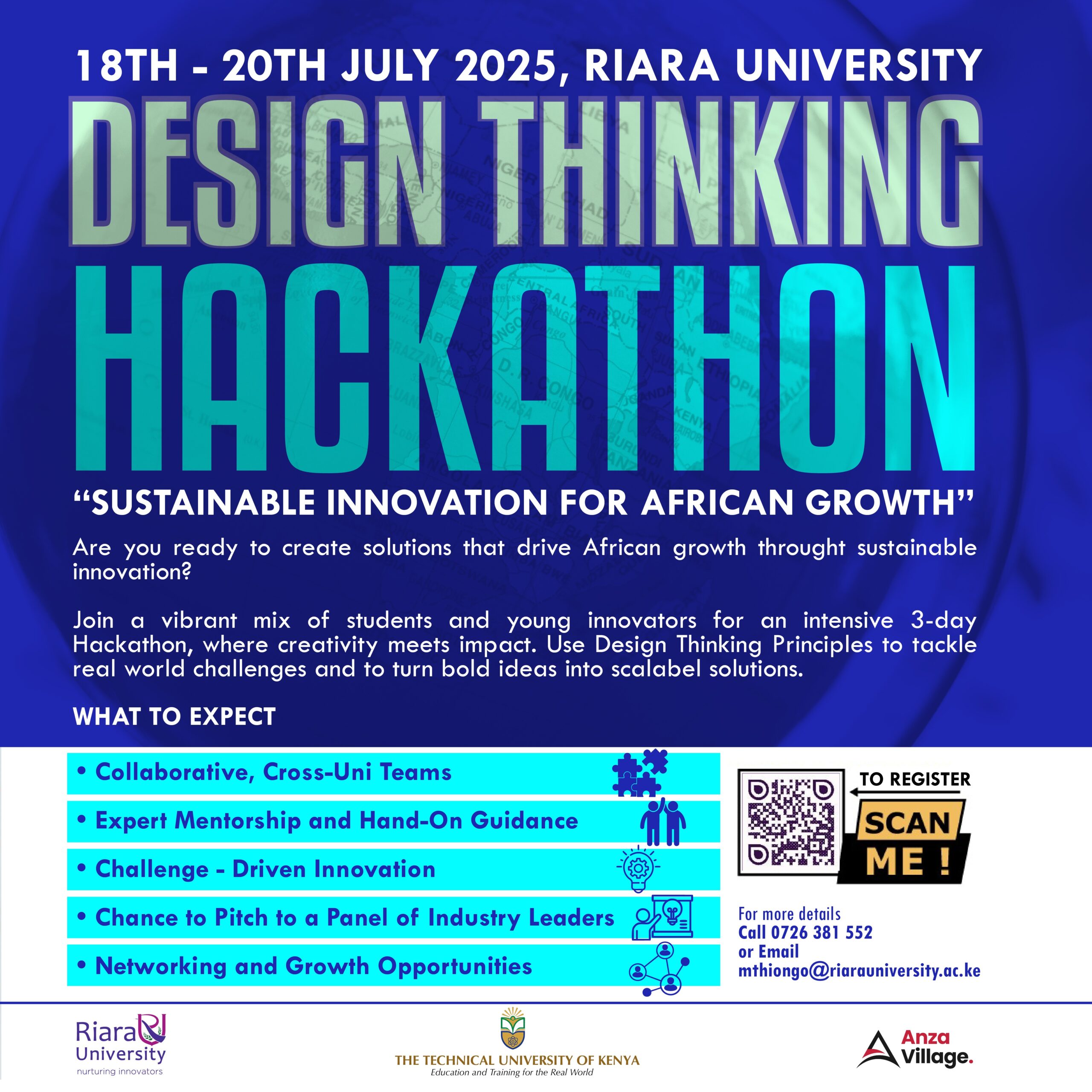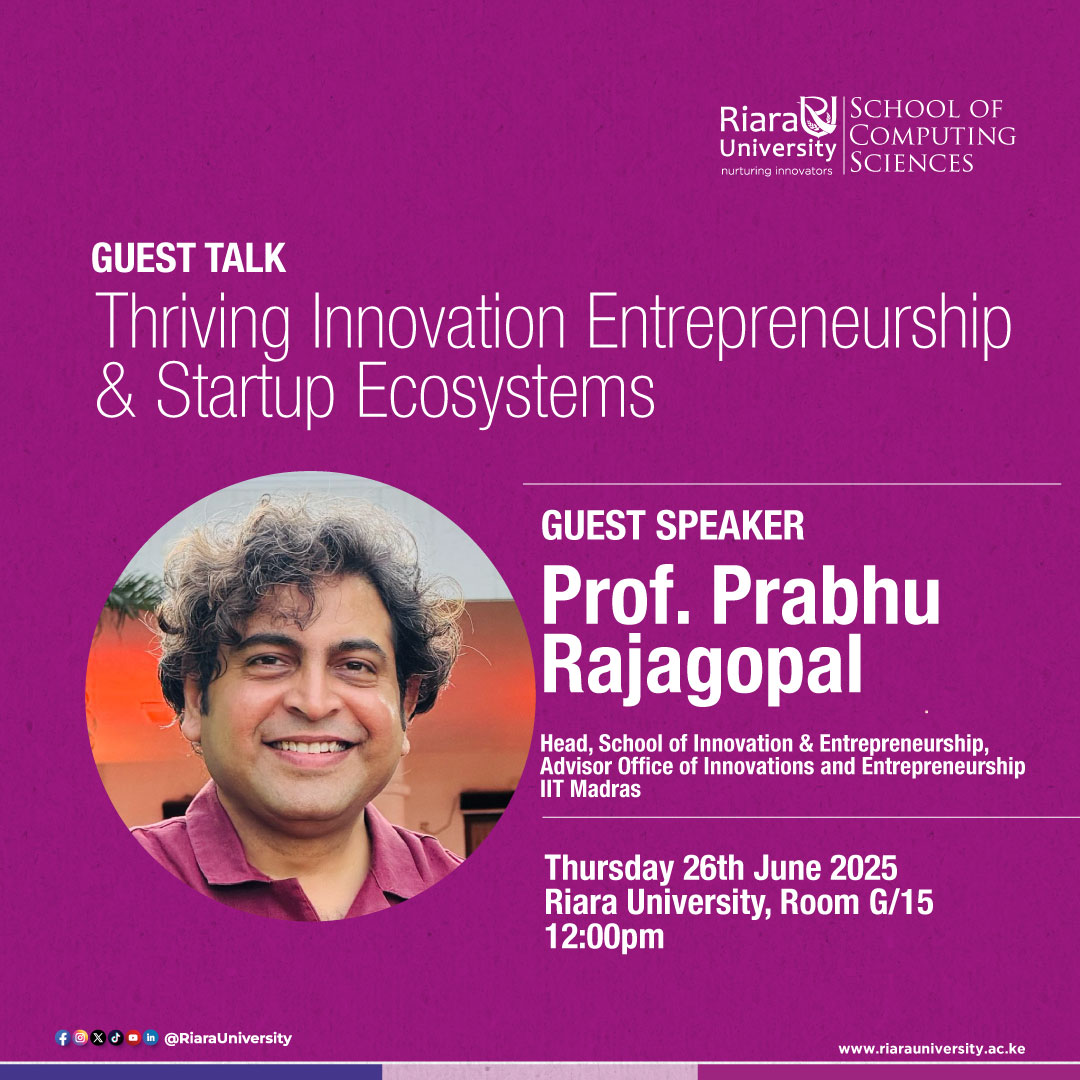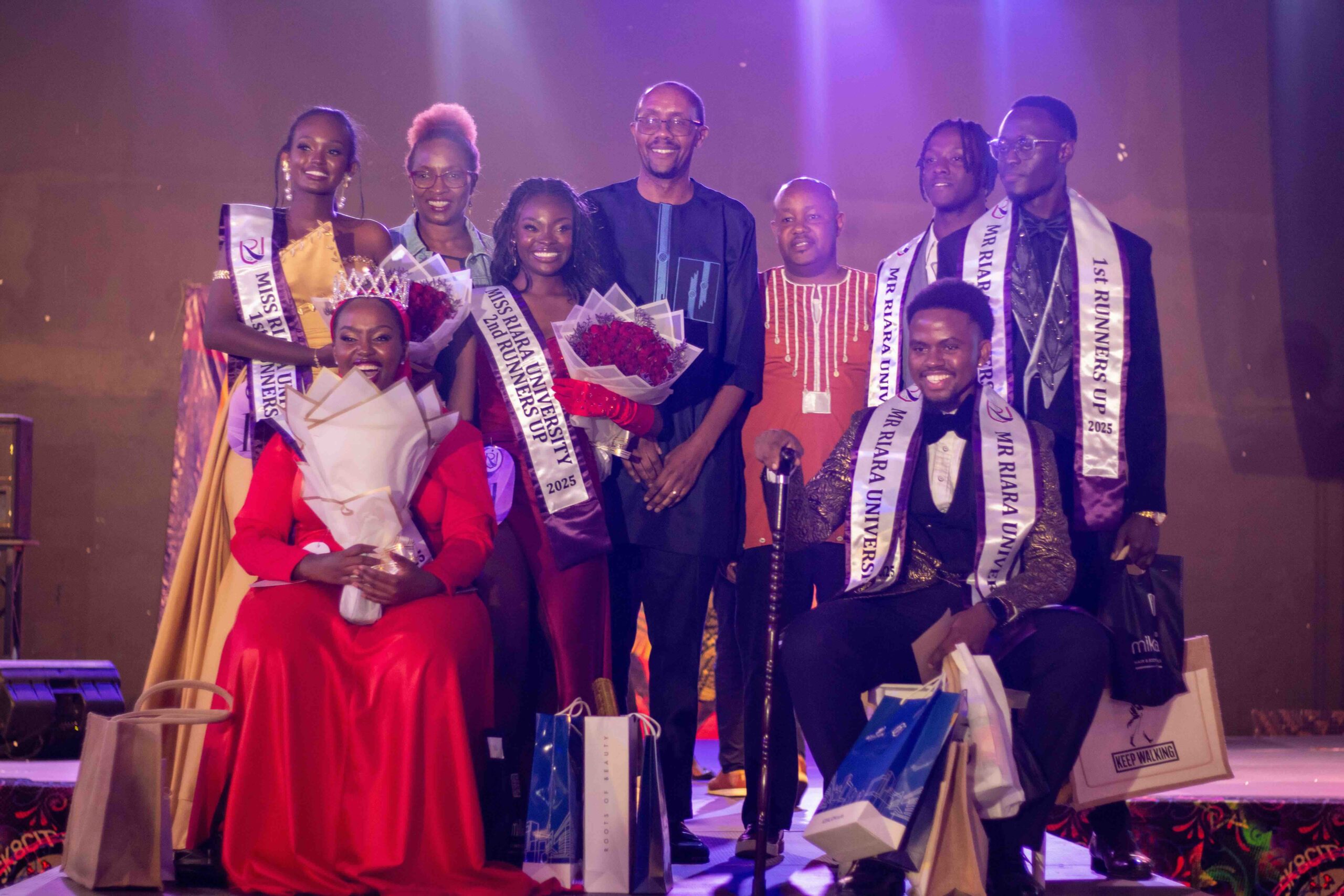Innovation took center stage on 26th June 2025 at Riara University as the School of Computing Sciences hosted a guest talk titled “Thriving Innovation, Entrepreneurship and Startup Ecosystems”, delivered by Professor Prabhu Rajagopal, Head of the School of Innovation and Entrepreneurship and Advisor at the Office of Innovation and Entrepreneurship in IIT Madras.
The guest talk drew a full audience, including Riara University Vice Chancellor, Prof. Robert Gateru, alongside members of faculty and students from the School of Computing Sciences. The talk aimed to spotlight the remarkable strides students are making in innovation and startups beyond Africa, particularly at the Indian Institute of Technology (IIT) Madras, and to explore how such an entrepreneurial mindset can be cultivated within Riara University’s own academic environment.
In what he described as the “first leg” of his presentation, Professor Rajagopal accentuated the vibrant innovation ecosystem at IIT Madras, one that has empowered students to take bold ideas from concept to global-scale startups. He highlighted two key pillars behind this success: the Center for Innovation (CFI)-IIT and Nirmaan-IIT, a pre-incubator program. The CFI operates as a ‘tinker lab’ or ‘maker space’ where students work hands-on with tech problems and enter global competitions. With over 100 active projects, international awards, and 12 world records, including Asia’s first student elections using blockchain, the CFI exemplifies a culture of learning by doing.
Meanwhile, Nirmaan supports students in developing business ideas that are both technically sound and economically viable by exploring and growing their entrepreneurial skills. Since its founding, it has nurtured over 148 student teams, helping launch a wide range of startups, some of which have attracted funding ranging from USD 500,000 to USD 10 billion. These ventures span fields like sustainable mobility, smart housing, online learning platforms, and drone-based solutions.
